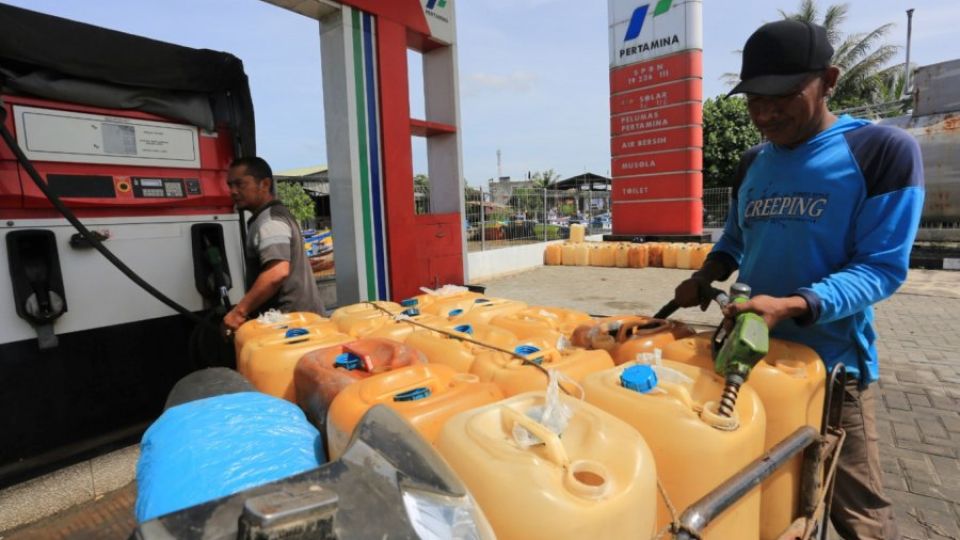November 7, 2023
JAKARTA – Indonesia’s annual economic growth rate has fallen below 5 percent for the first time since the coronavirus pandemic due to a slowdown in domestic spending and a decline in the trade surplus.
Statistics Indonesia (BPS) interim head Amalia Adininggar Widyasanti revealed that the country’s GDP in the third quarter of 2023 grew only 4.94 percent year-on-year (yoy), missing the government’s forecast of over 5 percent.
“Consumer spending was lower than in the previous quarter, because it normally reaches its peak in the second quarter,” Amalia told a press briefing on Monday.
BPS data show that Indonesian consumers spent 0.45 percent less in the third quarter than the previous quarter, while household spending was still up 5.06 percent yoy. However, that latter figure marks a slowdown from the 5.22 percent yoy growth recorded in the second quarter.
As a result, household spending contributed only 2.63 percentage points to the overall third-quarter growth of 4.94 percent. To compare, household spending contributed 2.81 and 2.77 percentage points to GDP growth to the first and second quarter, respectively.
Government spending, even though it accounts for only a small share of overall economic activity, also dragged down GDP growth in the third quarter as it came in 3.76 percent lower than in last year’s Q3.
Finance Minister Sri Mulyani Indrawati said in a separate press briefing on Monday that government spending always tended to be lower in the third quarter, because “some spending will only be realized in the fourth quarter”.
The latest headline figure marks the first time the country has posted a growth rate of below 5 percent since it recorded 3.53 percent in the third quarter of 2021, after which it maintained a rate of above 5 percent for seven quarters consecutively.
The lower-than-expected growth in the third quarter has prompted the government to revise down its GDP growth forecast for the full year.
The expected rate for 2023 is now 5.04 percent, according to Sri Mulyani. That is down from an expectation of 5.1 percent shared late last month by Febrio Kacaribu, head of the Finance Ministry’s Fiscal Policy Agency.
The new projection is almost identical with the average growth of 5.05 percent seen over the first nine months of the year.
“Consumer spending is lower than what we expected, because we have high consumer confidence, but that did not translate into consumption to the degree we had hoped,” said Sri Mulyani.
Indonesia’s consumer confidence index remained high in September with a reading of 121.7, though that is down from 125.2 recorded a month prior.
The minister went on to explain that the fourth-quarter baseline scenario was now for growth of 5.06 percent, but noted that global uncertainties may bring that down to 4.8 percent.
The government is looking to stoke economic activity through property-purchasing incentives, social assistance and the disbursement of more subsidized loans under the microcredit program (KUR).
The weaker global economy has pushed down Indonesia’s international trade, with exports contracting 4.26 percent yoy and imports dropping an even steeper 6.18 percent in the third quarter.
The country booked a trade surplus of US$7.83 billion in the third quarter, or nearly half the $14.86 billion surplus recorded in the same period last year, which took a toll on overall GDP growth.
The decline in surplus is closely intertwined with the global economic slowdown. In 2022, Indonesia’s exports were buoyed by a commodity boom that pushed up prices of its main export commodities, but both demand and prices have since normalized.
The global economy is reeling under geopolitical shocks from the wars in Ukraine and in Gaza, as well as the El Niño weather pattern that has disrupted harvests. Those events together have pushed up energy and food prices in global markets, driving inflation in many countries, prompting central banks to hike interest rates and forcing consumers to tighten their belts.
Coordinating Economic Minister Airlangga Hartarto said in the same briefing that the government would remain on alert in anticipation of global economic risks, especially those related to geopolitical developments.
“The world had only just begun to breathe again, but suddenly it has stopped breathing again,” said Airlangga, referring to how the war in Gaza broke out while the conflict in Ukraine had yet to be resolved.


